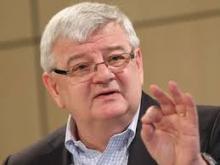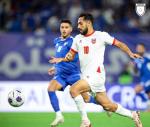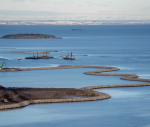You are here
The cold war is back
Oct 12,2022 - Last updated at Oct 12,2022
BERLIN — Vladimir Putin’s war on Ukraine is an attempt to turn back the clock to a time when Russia was a superpower that dominated Eastern Europe. Yet in what amounts to an effort to change the outcome of the Cold War, Putin has badly overestimated his capabilities. Realities on the ground in Ukraine have revealed that a war motivated by starry-eyed nostalgia for czarist rule was a grotesque miscalculation.
While we do not yet know how the war will end or how many victims it will claim (on both sides), it is already clear that Putin can no longer win, not on the battlefield, and especially not on the world stage. Between his latest threats to use nuclear weapons and his mobilisation of some 300,000 reservists, he has unwittingly exposed his own weakness and the dire predicament that Ukrainian battlefield advances have put him in. With his so-called “special military operation” having failed spectacularly, he now seems to have little choice but to turn the battle into a full-blown “war”, availing himself of all of Russia’s strategic resources, including its nuclear arsenal.
If Putin should indeed violate the nuclear taboo, which has been in place since 1945, he will turn Russia into a pariah, bringing about its near-complete international isolation. India and China will not follow Putin down that road, and nor will the United States and NATO tolerate such a dangerous form of escalation. As they have already signaled, they would respond militarily in a well-calculated but non-nuclear manner to ensure that Russia faces “catastrophic consequences”. For Putin, a nuclear strike would be another step towards defeat.
But what would this mean for Europe? Since Russia and the European Union will remain neighbours no matter what happens, Europeans would have to view Russia as an existential threat. We would suddenly return to the military standoff that we thought we had overcome at the end of the Cold War. With Russia waging a war to wipe Ukraine off the map, the hope of lasting peace and stability must be abandoned. The Cold War is back, and Putin’s nuclear saber-rattling means that it could turn “hot”, even radioactive. Europe must come to terms with this reality and implement the long-term changes that adapting to it requires.
As matters stand, the EU is far from being a great power. While it is taken seriously economically and technologically, it punches well below its weight in geopolitical terms, largely owing to its own internal divisions and conflicts. The catastrophe of World War II inaugurated a process of European unification that culminated in the creation of the EU, with its freedom of movement, common currency, and single market. But deeper political integration has never seemed possible.
As the reality of Cold War II sets in, that must change. Political integration is precisely what Europe must achieve unless it wants to live under the constant, debilitating threat of military attack and nuclear blackmail. NATO, with its security reassurances, will remain strong only if Europeans can bolster their side of the transatlantic bridge. And they can make bigger contributions to common defense and deterrence only by coming together politically.
Putin’s war of aggression in Ukraine has, of course, underscored just how important the US is to Europe’s defense capabilities. But Donald Trump’s presidency raised serious questions about the long-term reliability of US commitments. President Joe Biden fully embraces the principle of transatlantic solidarity and stands behind NATO; but will the next occupant of the White House do so?
The new threat to Europe’s eastern border will also move the EU’s centre of gravity eastward, giving those member states a bigger role in the concert of the union. In addition to being a legal community and a common market, the EU will have to become a security community, albeit one closely interwoven with NATO, a process that has already begun with Finland and Sweden’s bid to join the alliance.
For now, the immediate task is to ward off the acute threat of the war spinning out of control and spilling over into Europe. But over the longer term, Europeans will need to make the institutional changes necessary to establish an effective security framework.
Did Putin know what he was doing when he gave the order to invade Ukraine? We will probably never know for sure. But now that he has demolished the hope of peace, Europeans will have to adapt. Once again, freedom, democracy, and security on the continent cannot be taken for granted.
Joschka Fischer, Germany’s foreign minister and vice chancellor from 1998 to 2005, was a leader of the German Green Party for almost 20 years. Copyright: Project Syndicate, 2022.













